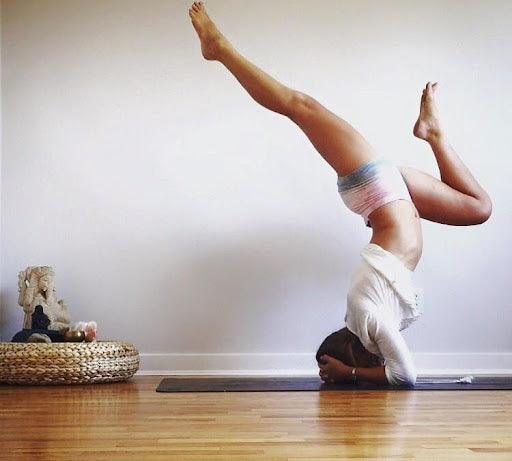Often when we think about yoga, we think about the complex poses and difficult asana associated with our practice, but many are not aware that yoga is mostly about the mind.
Movement through difficult and demanding postures is only the preparation and strives for a quiet psyche.
When comparing the two tasks of physical and mental practice, many find it easier to twist up and power through then to relax in mediation.
Yoga
What does yoga mean? Yoga can be translated to mean “Union” or the integration of both mind and body.

It is about finding a harmonious balance between our souls and our minds so that we can develop a balanced psyche to face each day and its challenges with a greater sense of ease.
If one focuses too much on the physicality and rigor of the practice, the yoga component becomes lost. If the practice becomes completely about the body, one’s strive towards a mind body balance is also lost.
There are many forms of exercise that incite a union between body and mind, not just a traditional yoga practice.
Staying attuned with your body while going on a jog, taking a hike in the mountains, or even taking an aerobic class at the gym, can always be practiced mindfully.
Yoga can be instilled wherever we choose to practice mindfulness if we acknowledge that both our minds and our bodies are at work. Also for the winding down benefits of yoga to help with sleep.
Understanding what the benefits are when you choose to incorporate a mind/body practice, may make it easier to start practicing a more mindful exercise regime.
Yoga in a Mindful practice
Studies have shown that the brain waves before and after a two hour yoga class transform from alpha waves to theta waves (the ones responsible for memory, dreams and emotions) by 40%.
This means that yogis leave feeling deeply relaxed and the mind is rested to take on new tasks. The study also attributes these waves responsible for alleviating mild depression and anxiety.
If practiced correctly, the final resting pose at the end of class (savasana) can help relieve the stress hormone known as cortisol. We actually wrote a whole blog post about the benefits of Savasana, written by one of our favorite yogis.

If that’s not enough to stay mindful during your next practice, according to Dharma Singh Khalsa, MD, a doctor who specializes in anti-aging medicine, says that very act of yoga can alter your brain chemistry to produce endorphins and promote relaxation.
So next class, stay aware of your body, repeat a mantra in your mind, and opt to stay a little longer in savasana. The extra awareness will go a long way.
Mindful Running
Mindful running is not about ignoring your aches and pains and pounding on pavement in order to burn as many calories as you can. It’s about staying conscious of your emotions and physical limits.

When you engage in a mindful run, you will be able to settle into a meditative cardiovascular experience.
Danny Dreyer, a national acclaimed marathon runner, and author of “Chi Running” explains that if you use your mind you don’t have to wear out your body.
The effect gives you the ability to run longer, dodge injury, and launch the endorphins in your brain.
Practice mindful running by listening to your body, becoming aware of your breath, and taking inventory of how you feel throughout your run.
By practicing this ‘union’ you will be able to sustain a run that is injury free, mindful, and invigorating.
Mindful Hiking
Getting outdoors is one of the best ways you to increase serotonin in your brain. If you are lucky enough to live near a green space, there is also the benefits called "forest bathing" that the Japanese have regarded as therapeutic for centuries.
Some studies have shown that 10 minutes in the sun can give you the enough vitamin D to ward off diseases such as osteoporosis, cancer, and depression.
Mindful hiking also allows you to create a union between you and the earth, showing a great respect for nature.

Structuring in a mindful hike is a good way to detach from the hustle and bustle of life and take some time amidst the stillness and subtle sounds of nature.
The result? You will come home feeling relaxed, appreciative, and be prone to a better night’s sleep from a natural dose of Vitamin D and meditation.
So next time you pick up your running shoes, grab a pair of comfy joggers, or head of to your favorite trailhead, remember to check in with your mind.
Have a conversation and ask your physical body how it’s doing.
By creating the union between mind, body and soul, you will reap the benefits of a plentiful and holistic practice.
What workout allows you to check in with yourself? Comment below, I'd love to hear from you!
xo
Jenna Hall (Evolve Writer)



